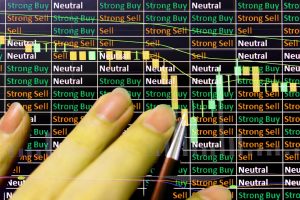Why is OTC Trading Important in Digital Banking?10 min read
Reading Time: 4 minutesOTC trading has become increasingly important in the modern world of digital banking and finance. By enabling individual and institutional traders alike to conduct large transactions privately and efficiently, OTC markets play a vital role in the global economy.
For digital banks like The Kingdom Bank that facilitate international electronic transactions, supporting OTC trading helps meet growing client demand while staying competitive in the fintech industry.
Let’s explore why OTC trading has risen to prominence and why it matters for the future of digital banking.
What is OTC Trading in Digital Banking?
At its core, OTC trading refers to the buying and selling of assets between two parties without an intermediary exchange. In digital banking, this most commonly involves foreign exchange (forex) and trading of other financial instruments.
Instead of placing orders through a centralized market, traders negotiate directly by phone, email or instant message to agree on a price and execute the deal.
Many digital banks have launched OTC trading platforms to capitalize on this trend. They pair individual and institutional clients with in-house dealers who actively make markets by quoting buy and sell prices for currencies, commodities, bonds, cryptocurrencies and other assets.
Traders can check live quotes, place orders and settle trades all through a centralized digital interface.
Behind the scenes, the bank’s dealers work to match orders and provide liquidity to the marketplace.

What are the Differences Between OTC Trading and Traditional Exchange Trading?
While both facilitate trades between buyers and sellers, OTC and exchange-based systems operate quite differently:
Privacy: OTC trades are private, bilateral negotiations between two parties. Exchange trades publicly disclose order flows and execution prices. For large institutions and ultra-high-net-worth individuals seeking discretion, OTC is preferable.
Customization: Lacking a fixed order book, OTC traders can negotiate non-standard deal terms like quantity, delivery date or tailor-made products. Exchange rules typically only allow for fungible, standardized contracts.
Speed: OTC trades often settle same-day since exchanges’ batch processing introduces delays. This immediacy suits traders requiring prompt execution and market exposure changes.
Liquidity: Exchanges benefit from concentrated order flows but may lack bids/offers during off-hours. Bank-provided OTC liquidity bridges such gaps since dealers stand ready 24/7.
Costs: Exchanges levy per-trade fees while OTC banks profit via spreads on client trades. For sizable positions, negotiating directly with a dealer desk can achieve a better overall price.
OTC venues afford greater customization, liquidity and discretion at the cost of less stringent price transparency compared to exchanges. Both serve valuable yet distinct functions in financial markets.
Is OTC Trading in Digital Banking Regulated?
While OTC markets lack a centralized authority, regulation does apply to digital banks providing access. Jurisdictional rules vary globally but most developed nations subject OTC trading to some degree of oversight to ensure market integrity and participant protection.
Specifically for banking stakeholders, regulations cover licensing, capital reserves, trading conduct, disclosure requirements, cybersecurity protocols and more. Regulators seek to curb market abuse while allowing sufficient flexibility for banks to facilitate and innovate in OTC trading.
One area of increased enforcement involves record-keeping of electronic communications between bank dealers and their counterparts. As OTC trading migrates online, regulators demand rigorous retention of trade discussions and negotiations involving clients.
Properly regulated digital banking creates structure around the freewheeling OTC space without constraining its advantage of flexibility.
How Can Individuals Access OTC Trading Through Digital Banking Platforms?
Individual traders interested in accessing OTC markets have several good options available through providers like The Kingdom Bank:
- Account Opening: Sign up for a digital bank account and go through standard Know Your Customer verification procedures. Minimum deposit levels apply.
- Platforms: Access the bank’s proprietary OTC trading portal equipped with dealer feeds, charting tools and order execution capabilities. Mobile apps further enhance access.
- Dealer Desks: Work directly with dedicated dealers assigned based on factors like region and traded instrument. Place inquiries about prices and place orders over messaging.
- Education: Take advantage of educational resources on various OTC products, strategies, risks and proper money management. Demo trading accounts aid the learning process.
- Leverage: Some banks may offer leveraged OTC trading using margin lending against deposited funds. Leverage magnifies both profits and risk which requires caution.
With convenient access through innovative digital banking channels, more retail traders now reap the benefits of interacting directly in OTC markets formerly dominated by professionals.
Proper research and understanding remain important when venturing into this less regulated space.

Which Digital Bank is the Best to Do OTC Trading?
For those interested in OTC trading through a digital banking platform, The Kingdom Bank stands out as one of the top choices for several key reasons:
- Expertise – The Kingdom Bank was founded by market professionals with decades of experience in OTC execution and clearing services for large institutions.
- Liquidity – The bank partners directly with tier-one liquidity providers that make tight markets in major and niche OTC traded assets globally.
- Regulation – The Kingdom Bank is licensed in both Europe and North America with comprehensive know-your-customer and anti-fraud procedures to comply with regulations.
- Technology – Its secure online and app-based platforms provide advanced trading tools and streaming OTC market data right in your account.
- Support – OTC specialists are available by phone, chat, or email for guidance in everything from trade execution to position transfers.
- Fees – The Kingdom Bank offers competitive all-in pricing on OTC trades compared to brokers with no hidden costs or minimum activities requirements.
For serious individual or institutional traders, The Kingdom Bank provides an innovative digital avenue to fully participate in global over-the-counter markets in a regulated yet nimble manner.
OTC trading fills an important niche in global financial markets and its advantages are directly fueling growth of digital banking platforms.
Leading providers like The Kingdom Bank smoothly connect individual and institutional market participants to independent sources of liquidity, customized products and discretion when trading. With ongoing innovation, OTC is sure to remain a cornerstone of sophisticated 21st century finance.
Consider opening an account at The Kingdom Bank today to experience their award-winning services and premium dealer network. The future of trading is here – don’t miss your chance to participate.





